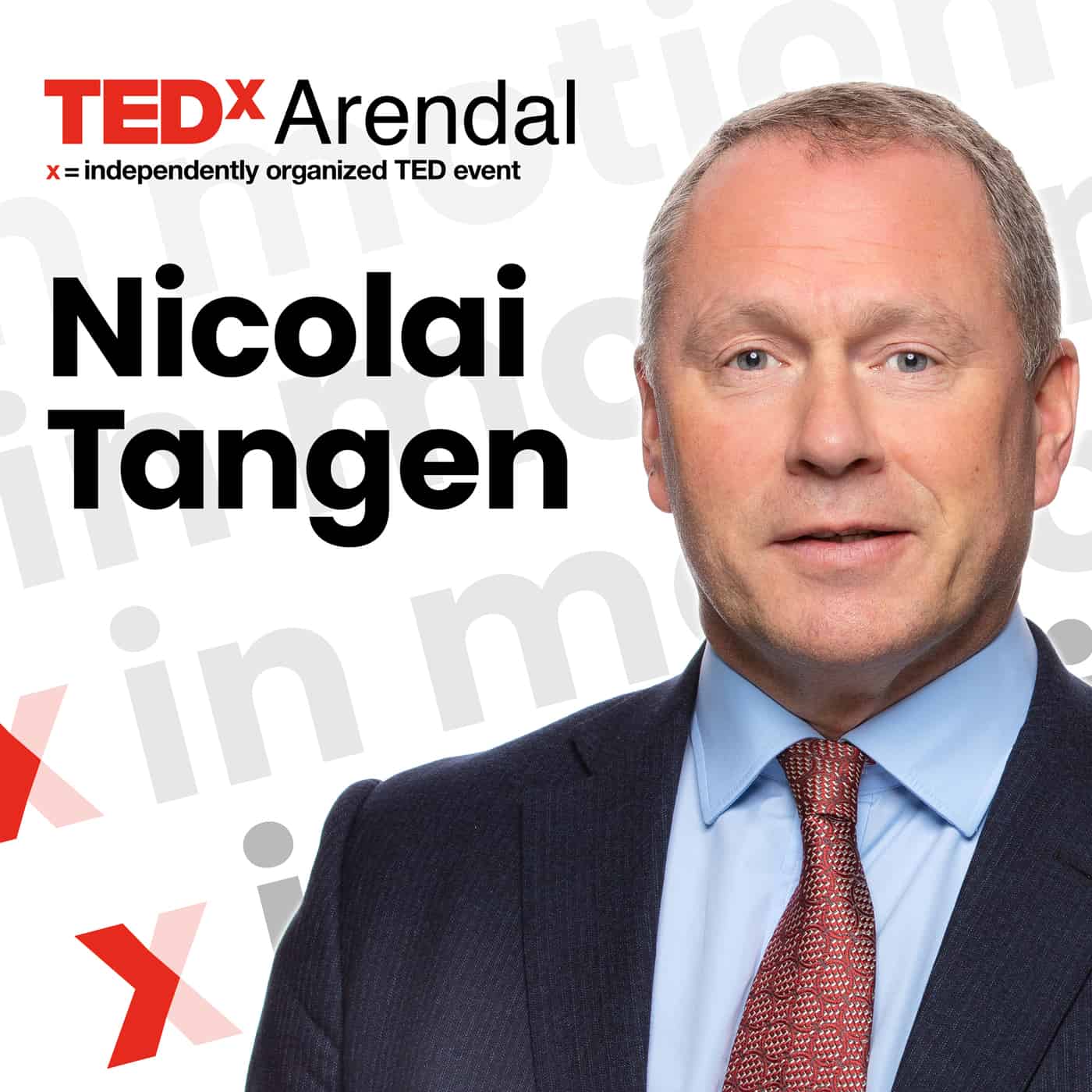Norway's Nicolai Tangen: Navigating Trump's Tariffs

Table of Contents
Nicolai Tangen, the head of Norway's massive Government Pension Fund Global (GPFG), one of the world's largest sovereign wealth funds, faced a significant challenge during the Trump administration's era of escalating tariffs. This article delves into Tangen's strategies and the impact of Trump's trade policies on the GPFG's investments. We will examine how Tangen navigated this turbulent period and the lessons learned for managing global investments in a volatile political climate. The Trump tariffs presented a unique test for the GPFG's investment approach, forcing a reassessment of risk management and strategic allocation.
The Impact of Trump's Tariffs on Global Markets
Trump's imposition of tariffs, primarily targeting China but also impacting other countries, significantly disrupted global trade and financial markets. This period, often referred to as a "trade war," created a complex and uncertain environment for investors worldwide, including the GPFG.
Disruption to Global Supply Chains
Trump's tariffs directly impacted global supply chains, leading to several negative consequences:
- Increased costs for imported goods: Tariffs raised the prices of imported materials and finished products, increasing input costs for businesses and impacting consumer prices.
- Reduced trade volume: The uncertainty surrounding tariffs discouraged international trade, leading to reduced volumes of goods and services exchanged globally.
- Shifts in manufacturing locations: Companies sought to relocate manufacturing operations to avoid tariffs, leading to significant shifts in global production patterns. This particularly affected sectors heavily reliant on international trade, such as technology and manufacturing.
- Impact on specific sectors: Industries heavily reliant on imported components or exporting to affected markets suffered disproportionately. The technology sector, for example, faced challenges due to the interconnectedness of its global supply chains.
Increased Market Volatility
The trade war fueled considerable market uncertainty and volatility. This created significant challenges for investment managers like Nicolai Tangen:
- Fluctuations in currency exchange rates: Tariffs and trade disputes affected currency valuations, creating additional risks for international investors.
- Increased market risk premiums: Investors demanded higher returns to compensate for the increased uncertainty, impacting asset valuations.
- Impact on investor confidence: The unpredictable nature of the trade policies eroded investor confidence, leading to market corrections and increased volatility.
Tangen's Investment Strategy and Risk Management
Nicolai Tangen's leadership of the GPFG during this period emphasized diversification, active management, and a long-term perspective. His approach aimed to mitigate the negative impacts of the Trump tariffs.
Diversification and Active Management
Tangen’s strategy relied heavily on diversification across asset classes and geographies to cushion the impact of the tariffs. This involved:
- Increased allocation to emerging markets: To counter the negative effects on developed markets, the GPFG likely adjusted its portfolio to include a higher allocation to faster-growing emerging markets, which were less directly affected by the trade war.
- Focus on sustainable investing: A focus on Environmental, Social, and Governance (ESG) factors may have been a key component of this strategy, potentially identifying companies better positioned to weather the economic storm.
- Strategic adjustments based on tariff impacts: The GPFG likely actively monitored the impact of tariffs on specific sectors and adjusted its portfolio accordingly, potentially reducing exposure to particularly vulnerable industries.
Focus on Long-Term Growth
Despite the short-term market volatility, Tangen prioritized the GPFG's long-term growth objectives:
- Emphasis on value investing: By focusing on undervalued assets, the GPFG aimed to capitalize on market corrections caused by the trade war.
- Avoiding short-term speculation: The GPFG likely avoided short-term trading strategies, staying committed to its long-term investment horizon.
- Maintaining a patient investment horizon: A long-term perspective allowed the GPFG to weather the short-term volatility and capitalize on opportunities arising from the market disruptions.
Engagement with Companies and Governments
While not publicly detailed, Tangen's leadership likely involved engagement with corporations and governments impacted by the tariffs:
- Dialogue with companies about supply chain resilience: The GPFG may have engaged directly with portfolio companies to assess their resilience to supply chain disruptions and support strategies for diversification.
- Advocacy for free trade agreements: Although not a direct role for the GPFG, Tangen might have indirectly supported policies advocating for free trade agreements through his network and influence.
- Engagement with international bodies: The GPFG, being a significant global investor, likely engaged with international organizations and bodies to understand and mitigate the long-term effects of protectionist policies.
The GPFG's Performance During the Trump Tariff Era
Evaluating the GPFG's precise performance during the Trump tariff era requires detailed financial data. However, a general assessment can be made:
Analyzing Returns and Risk-Adjusted Returns
- Year-on-year performance: While specific numbers would need to be sourced from official GPFG reports, the fund's performance likely reflected the general market volatility, with periods of both gains and losses depending on the specific asset allocation and market movements.
- Comparison to other fund managers: A comparison with the performance of other large sovereign wealth funds and global investment managers during the same period would provide valuable context.
- Risk-adjusted return metrics: Metrics like the Sharpe ratio, which considers both return and risk, would offer a more nuanced evaluation of the GPFG's success in navigating the turbulent market conditions.
Lessons Learned
The Trump tariff period provided invaluable lessons for the GPFG and other global investors:
- Importance of proactive risk management: The experience underscored the need for sophisticated risk management models that anticipate and adapt to geopolitical events.
- Adapting to unforeseen events: The ability to quickly adjust investment strategies in response to unforeseen events, like the imposition of tariffs, is critical for success.
- The benefits of a diversified portfolio: The importance of diversification across asset classes and geographies in mitigating the impact of specific events was reinforced.
Conclusion
Nicolai Tangen's leadership of the GPFG during the Trump tariff era showcased the complexities of navigating global investment in a period of heightened political risk. His emphasis on diversification, long-term growth, and active risk management provided valuable lessons for investors worldwide. By adapting his investment strategy and prioritizing robust risk management, Tangen successfully steered the GPFG through challenging economic conditions. Understanding how leaders like Nicolai Tangen respond to global economic shocks like Trump's tariffs is crucial for anyone interested in navigating the complexities of global finance. Learn more about effective investment strategies during periods of geopolitical uncertainty and how to mitigate risk by researching further into sovereign wealth fund management and global macroeconomic trends. Explore the lessons learned from Norway's experience with the Trump tariffs to strengthen your own understanding of navigating economic turbulence.

Featured Posts
-
 Paddy Pimblett Was Dustin Poirier Wrong To Retire
May 04, 2025
Paddy Pimblett Was Dustin Poirier Wrong To Retire
May 04, 2025 -
 Britains Got Talent Sudden Halt And Host Announcement Explained
May 04, 2025
Britains Got Talent Sudden Halt And Host Announcement Explained
May 04, 2025 -
 Berlangas Fight Choices Edwards Highlights Money As The Decisive Factor Avoiding Plant Targeting Munguias Weaknesses
May 04, 2025
Berlangas Fight Choices Edwards Highlights Money As The Decisive Factor Avoiding Plant Targeting Munguias Weaknesses
May 04, 2025 -
 Ufc Fight Night Sandhagen Vs Figueiredo Fight Breakdown And Predictions
May 04, 2025
Ufc Fight Night Sandhagen Vs Figueiredo Fight Breakdown And Predictions
May 04, 2025 -
 Mieux Prevenir Que Guerir Strategies Efficaces
May 04, 2025
Mieux Prevenir Que Guerir Strategies Efficaces
May 04, 2025
